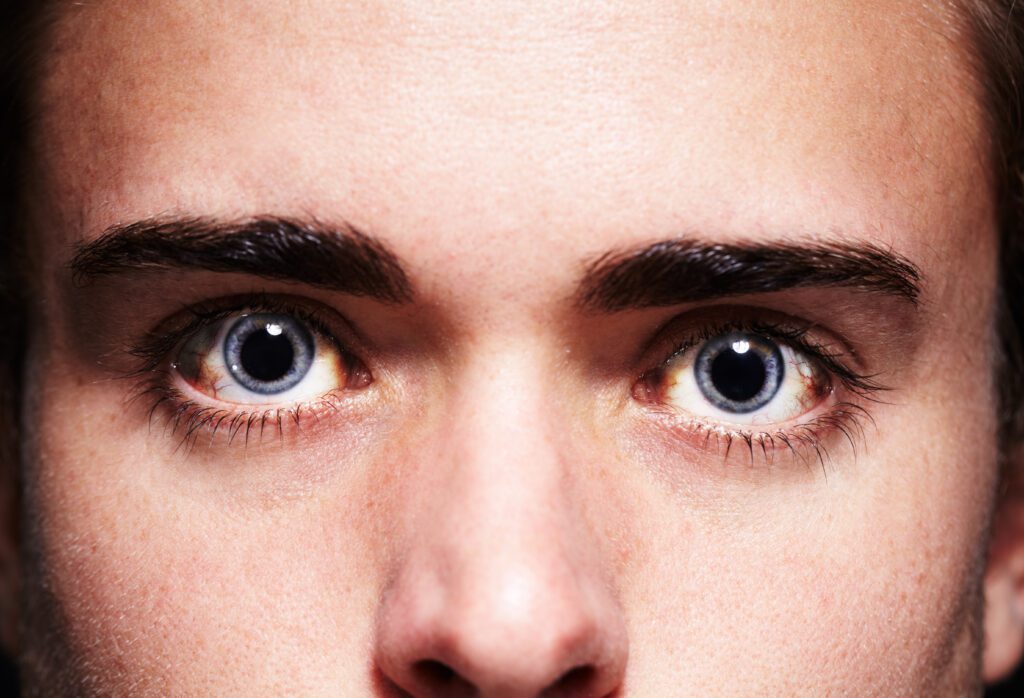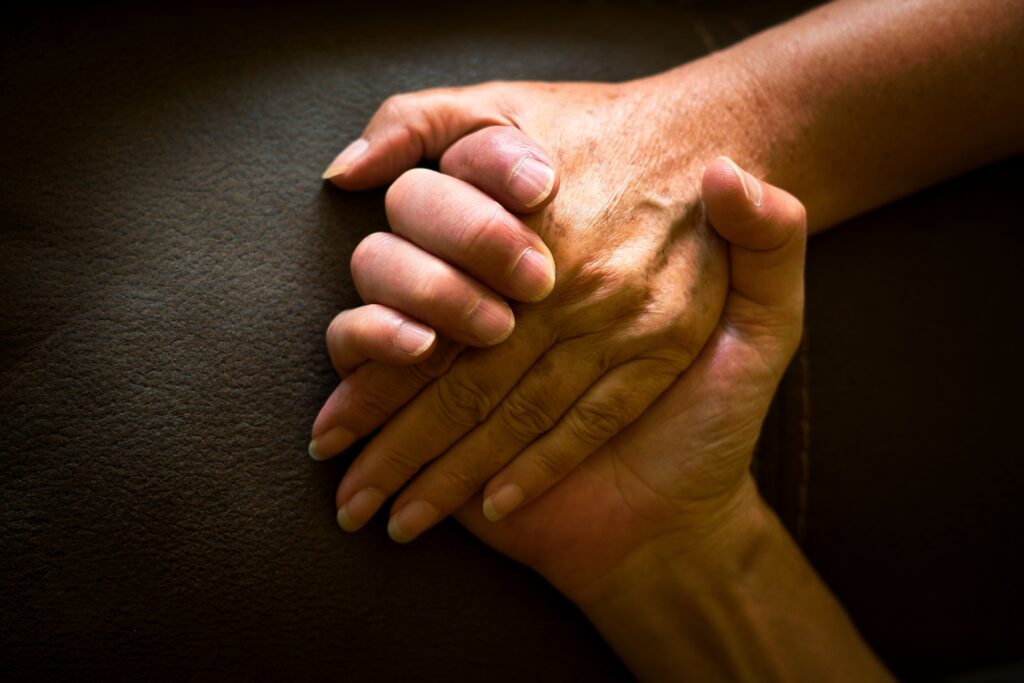Inhalants are chemicals, gases, or vapours that produce psychoactive effects when inhaled. They cause a characteristic high and can become addictive if abused. Most inhalants are products used in everyday activities and are usually not considered drugs. However, these substances are hazardous as they are not intended for human consumption. Even a single wrong use can lead to adverse health effects.
Addictive inhalants include regular household items like hand sanitizers, gasoline, glue, aerosol cleaning products, butane lighters, spray paints, propane tanks, hairspray, and deodorants. Medical anesthetics like nitrous oxide (laughing gas), chloroform, and ether can also be abused for their mind-altering effects. These substances are typically ingested by sniffing, huffing, snorting, spraying, or bagging to produce a rapid euphoric effect that leaves the user craving the substance between uses.
Addiction inhalants are cheap, legal, easy to access, and are more easily misused by young people. About 3% to 5% of Canadian adolescents have tried inhalants, which could be higher among poorer populations. Most cases of inhalant abuse are experimental and infrequent, but these substances carry a similar addiction potential to other substances. Individuals who regularly abuse or are addicted to inhalants are at risk of severe physical and mental health consequences and require professional help. The Canadian Centre for Addictions offers an inhalant addiction treatment program and rehab in Ontario.
Getting Help for Inhalant Addiction

If you or a loved one is dealing with inhalant addiction, the Canadian Centre for Addiction can help. At CCFA, we offer the most sophisticated inhalant addiction treatment in an environment that inspires lasting change. We also help people understand their addictions and the healthier coping strategies available to them by engaging them in one-on-one counselling with certified counsellors, psychiatrists, and mental health professionals. Call 1-855-499-9446 to learn more about our treatment programs.
How We Treat Inhalant Addiction and What to Expect
At CCFA, we understand that the best way to treat addiction is to customize the treatment to meet the individual’s needs. We tailor our treatment strategies to meet the unique symptoms of the client. Our visitors can expect a full range of services that provide flexible therapy and addiction counselling. We also know that addiction can negatively impact every aspect of your life, so our specialists will assess you to provide an individualized, client-centred approach to treatment.
Our addiction treatment centre offers inpatient rehab, outpatient treatment, individual and group counselling, intervention counselling, and lifetime aftercare, all designed to give you the best chance at recovery.
When to Seek Help for Inhalant Addiction

Inhalant use often starts with an experimental or occasional use of a readily accessible substance. Social settings like nightclubs or college parties where substances like nitrous oxide or amyl nitrates are available could be the starting point for inhalant abuse and addiction. All use of inhalants for their mind-altering effects is considered abuse as they are not designed to interact with the human body. Concealing inhalant abuse and addiction is easy because the effects wear off quickly. However, the presence of any of the following inhalant abuse signs suggests that a person needs to seek professional help:
- Craving for the inhalant of choice between use
- Using inhalants in higher amounts than initially intended
- Repeatedly trying and failing to stop inhalant use
- Spending a lot of time obtaining, using, and recovering from inhalant effects
- Inability to quit using inhalants despite its impacts on one’s life and relationships
- Neglects home, work, or school responsibilities to use inhalants
- Skipping hobbies or social events to use inhalants
- Regularly using inhalants in dangerous situations like driving or operating machinery
- Developing tolerance to inhalants – needing more of the same substance to get the same effects
- Experiencing withdrawal symptoms with cessation or reduction of inhalant use
Why Should You Choose the Canadian Centre for Addictions?

Inhalant addiction is a disease and requires professional treatment for lasting recovery. It also carries a significant stigma, which makes it difficult for people to speak out to seek help. Addiction disrupts your life and disconnects you from the things that matter. At CCFA, we offer a patient-centric approach that keeps you connected to your life and responsibilities outside so your transition to regular life is as smooth as possible.
We take our work seriously because we understand that our clients are at a vulnerable point in their lives. Our staff are open, honest, and communicative about what we deliver and take the first step towards building the trust needed to form strong bonds with those who need our help.
We also understand that addiction affects the individual and others close to them. So, our therapists and staff extend their care to helping families cope with addiction while treating their loved ones. We not only help people overcome their addictions, but we also help them navigate the hurdles that addiction creates for those who care about them.
Treatment at CCFA doesn’t end but evolves when you leave. We offer a place where people can return to if things get hard. Our combination of quality inpatient care and the sense of community from our aftercare services provide a balance you can rely on year after year.
The Canadian Centre for Addictions Success Stories
At CCFA, we have recorded tremendous success in treating people with various addictions. Here are testimonials from some of our satisfied clients:
“The highly competent staff is able to provide emotional and physical support as well as effective addiction therapy. With an open mind, I found I was able to draw healing from each of the well-balanced and skillfully presented meetings and activities. During my stay at CCFA, I learned how to regain control of my life. I left with skills I require to keep moving forward in my recovery. The facility is spacious, comfortable and clean, and the community is exceptional. The fitness and activities, as well as the delicious meals, are outstanding. By far, this was the most productive 30 days of my life. A gift from me to me!”
Elliot Hester
“I came in with a broken soul, full of self-pity, not liking who I was, full of fear and low self-esteem. During my stay, I learned so many valuable lifelong lessons. The counsellors challenged me to feel again; to think and understand those feelings, to express my feelings and thoughts. They have taught me the strategies and tools that I must apply to my new life going forward. For the first time in my life, I feel calm, relaxed, strong with the new me, and most importantly, HAPPY. Thank You.”
Edmund Rudd
“My involvement with CCFA has been an absolute lifesaver for me. The entire program and one-on-one sessions have given me the look and strategies to leave with and have a clean and sober life going forward. A very warm, welcoming, home-like environment.”
Martha Esquivel
“The CCFA has showed me a new way of life. The counsellors here are amazing, love working with all of them. I had a great stay and can’t wait to continue my road to recovery with the tools I have learned. Thank you.”
Kiaan Ochoa
Types of Treatment for Inhalant Addiction
The Canadian Centre for Addictions offers multiple treatment options for inhalant addictions. Our inhalant treatment programs are designed to address clients’ specific needs and include the following:
Detox
Detox is a medical process of cleansing the body of harmful substances in a safe, controlled manner. Inhalants have a relatively short period of action, but they can leave long-lasting or permanent health effects. Inhalant detox typically focuses on identifying addiction-related damage and managing withdrawal symptoms. Inhalant withdrawal symptoms can be unpleasant, and our staff may prescribe medications to help reduce the effects of withdrawal.
Inpatient Rehab
Inpatient rehab offers clients a break from the daily routine that enabled their use. Addictive inhalants are easily accessible, and residential treatment cuts off that access and facilitates recovery. CCFA provides a safe and sober environment for people severely affected by inhalant addiction to get better. We utilize patient-centric treatment protocols to help clients recover and employ a holistic approach that combines medical treatment with other relevant options.
Outpatient Treatment
Individuals with mild inhalant addiction cases may opt for our outpatient treatment program. Here, the client lives at home but attends regular appointments and meetings. Outpatient treatment allows individuals with responsibilities to continue their daily activities while getting help for their addiction. It is ideal for clients with manageable symptoms and sufficient motivation to get better. Outpatient treatment also requires a reliable support network of friends and family to encourage and help the patient stay on the path to full recovery.
Counselling
Addiction is often caused by negative thinking patterns that fuel harmful behaviour. Finding and modifying the root cause of these thought patterns is often crucial to overcoming addiction. Our addiction counselling programs involve individual or group sessions that help participants identify and change these thought patterns and behaviours. It also helps spot and resolve past trauma that may be promoting addictive behaviour. CCFA’s counselling and intervention programs help addicts develop positive attitudes and skills, which they’ll use as they begin their journey to sobriety.
Aftercare
Inhalant addiction recovery does not end with treatment. Recovering addicts require continuous aftercare services to prevent relapse when they face challenges. Our relapse prevention programs equip patients with the tools and coping mechanisms to remain sober when they inevitably encounter triggers. An aftercare treatment plan depends on an individual’s situation and may include outpatient treatment, counselling, and 12-step programs.
What to Expect in Inhalant Addiction Treatment
The Canadian Centre for Addictions offers inhalant addiction treatment in an environment that inspires lasting change. Our programs address addiction from a biological and psychological standpoint. The first thing we’ll do when you come in for treatment is to evaluate and understand your situation so that we can design a specialized recovery plan. People who abuse inhalants also tend to use substances like marijuana and alcohol. We will assess your medical history and test for the presence of other drugs.
Our staff will screen you for co-occurring mental health disorders and perform tests to determine the amount of drugs in your system. We will start your treatment with detox to rid your body of all toxic substances. If your situation is severe, you will be admitted to our facility so our staff can safely monitor and manage your withdrawal symptoms. Otherwise, we’ll allow you to go home and return for scheduled appointments.
We offer individual and group counselling sessions to help clients identify underlying thoughts and behaviours that fuel substance use and addiction. Our holistic treatment programs incorporate meditation, mindfulness, and yoga to help our clients stay grounded. You may also be encouraged to join a support group where you connect and interact with others at different stages of recovery.
Your treatment does not end when you leave our centre. At CCFA, we provide aftercare and relapse prevention services as part of our treatment program. We teach our clients to identify their triggers and design strategies to avoid or get through them. We also offer bi-weekly in-person aftercare visits and teleconferencing options to ensure long-term recovery.
Inhalant Addiction Treatment Stages

The stages in the inhalant addiction treatment are:
- Detox
- Inpatient/Outpatient treatment
- Counselling/therapy
- Aftercare
Understanding Inhalant Addiction
Inhalant addiction – also known as inhalant use disorder – is when a person cannot stop abusing inhalants for their mind-altering effects despite obvious adverse consequences. This condition is prevalent among young people, who may sniff, huff, bag, spray, or ingest readily available substances intended for other purposes.
Inhalants produce euphoric effects similar to substances like alcohol and opioids. They are quick-acting, and their effects last for a relatively short period – a few minutes to an hour – but users will often try to make it last by inhaling repeatedly over several hours. Most inhalant users will repeatedly abuse their substance of choice, and this chronic exposure will put them at addiction risk.
Inhalants directly suppress the central nervous system and slow down brain activity, causing users to feel lightheaded and experience sensory hallucinations. Repeated use of inhalants to achieve these euphoric feelings will lead to tolerance and addiction in some cases. The effects of addiction may range from mild to severe and affect the user’s health, relationships, and responsibilities. Trying to quit using the substance of choice at this stage may lead to withdrawal symptoms.
Withdrawal Symptoms of Inhalants
Inhalant withdrawal symptoms occur when a person dependent on inhalants stops using their substance of choice. Central nervous system functions suppressed by prolonged inhalant use become overactive with sudden discontinuation. Withdrawal symptoms commence 24 to 48 hours after the last use and may be mild to severe, depending on frequency of use and duration of addiction. Symptoms usually last for one to two weeks, but in some cases, users may experience post-acute withdrawal symptoms (PAWS), which can last for up to 24 months.
Inhalant withdrawal symptoms include:
- Excessive sweating
- Teary eyes/runny nose
- Nausea and vomiting
- Rapid heartbeat
- Insomnia
- Psychosis
- Hallucinations
- Cramps and chills
- Intense cravings
- Irritability and agitation
- Hand tremors
- Anxiety and depression
- Restlessness
- Seizures
- Difficulty concentrating
- Fits of anger
- Mood swings
Inhalant Addiction Symptoms
Inhalant addiction symptoms could be physical, behavioural, or cognitive:
Physical Symptoms
- Drowsiness/dizziness
- Glassy or watery eyes
- Headaches
- Nausea/vomiting
- Muscle weakness
- Slow reflexes
- Mouth sores
- Runny nose
- Irregular heartbeat
- Shallow or irregular respiration
Behavioural Symptoms
- Risky or reckless behaviour
- Acting in an aggressive manner
- Restlessness
- Mood swings
- Apathy
- Poor hygiene
- Keeping significant quantities of household products
- Isolating from loved ones and friends
- Engaging in deceptive behaviour like lying about their activities or whereabouts
- Spending a significant amount of time in the garage or store
- Diminished coordination and motor control
Cognitive Symptoms
- Poor memory
- Difficulty concentration
- Poor judgment
- Disorientation
What are the Causes of Inhalant Addiction?
Like other forms of addiction, there is no single reason why a person would develop inhalant addiction, but the following risk factors could increase one’s chances of abuse and dependence.
Genes
A person’s genetic composition and family history play a role in their becoming addicted to substances. Individuals from homes where a loved one has struggled with substance abuse may also be more likely to develop an addiction.
Peer Pressure
Adolescents represent the largest demographic when it comes to inhalant abuse and addiction. The need to conform and not feel left out can lead young people with low self-esteem to abuse and become addicted to inhalants.
Poor Economic Background
Inhalants are cheap and easily accessible, and this can cause people who cannot afford more expensive drugs to experiment and become addicted to household substances.
History of Trauma
Teen inhalant abuse is common among young people with traumatic histories who attempt to cope or numb their pain by abusing easily accessible intoxicants like inhalants.
Long-term Effects of Inhalant Addiction
Long-term abuse of inhalants can cause severe and lasting effects such as:
- Respiratory damage
- Bone marrow suppression or damage
- Delayed behavioural development
- Progressive neurological damage leading to limb spasms, hearing loss, and loss of coordination
- Damage to vital organs like the liver, brain, and kidneys
- Cellular damage due to anoxia (lack of oxygen)
- Sudden death due to suffocation, asphyxiation, or choking; death may also occur from a single use when volatile solvents get into the bloodstream via the lungs
Frequently Asked Question
The most extreme side effect of inhalants is the sudden death that can occur due to a single drug use. Volatile gases can pass from the lungs into the blood vessels and cause heart failure, seizures, and respiratory distress, leading to death from overdose.
Inhalant abuse is the deliberate use of household solvents, gases, and anesthetics for their euphoric effects. All use of inhalants to achieve a mentally-altered state qualifies as abuse.
Examples of inhalant gases include computer cleaning sprays, butane lighters, whipped cream dispensers, refrigerants, propane tanks, and medical anesthetics like ether, chloroform, and nitrous oxide (laughing gas).
You can avoid inhalants by talking to your child about the dangers of inhalants early on and demonstrating the safe and proper use of medicines and household items. Advise them to avoid anyone suggesting inhalant use. You may also need to let them know that they may be ridiculed if they refuse to join their peers to abuse inhalants.
- Huffing: soaking a rag with inhalants and placing it over the mouth or nose before inhaling the fumes
- Bagging: spraying or placing the inhalant into a plastic or paper bag and inhaling or snorting it
- Inhaling from balloons filled with nitrous oxide (laughing gas)
- Spraying aerosols directly into one’s mouth or nose
- Snorting or sniffing the substance directly from a vessel or container
Inhalants are chemicals, gases, and vapours often abused for their mind-altering properties. Inhalant medications are drugs directly delivered to the lungs using handheld devices known as inhalers. Inhaled drugs allow a quicker onset of action and fewer side effects. They are prescribed for conditions like asthma and chronic obstructive pulmonary disorder (COPD).
Yes. Long-term inhalant abuse can lead to brain damage, cognitive impairment, and acute psychosis.
You should speak openly to your child if they are huffing or abusing inhalants in any way. Teen huffing/inhalant abuse is life-threatening, and they need to understand that. You may also need to seek professional help if the situation persists.
Yes. Inhalants contain toxic chemicals that can displace air in the lungs, deprive the body of required oxygen, and lead to hypoxia (low oxygen).
Yes. Inhalant use leads to progressive neurological damage, which can cause hearing loss.

